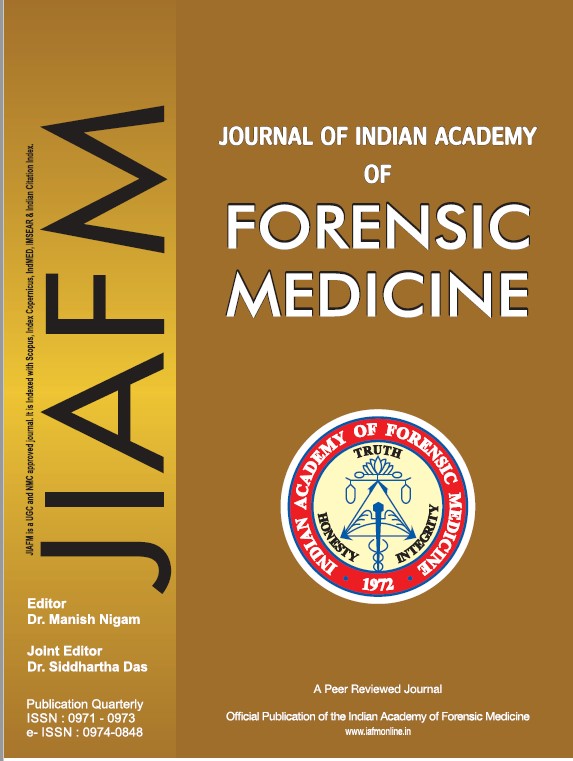Routine preservation of viscera: Is it really required? A Study from Gujarat, India
Keywords:
Autopsy, Blood, Chemical analysis, Poisoning, VisceraAbstract
At most centers, viscera are routinely preserved in four jars, which involve multiple resources in terms of money, manpower and time. The present study was intended to examine & evaluate the reports of chemical analysis with a hypothesis that if blood tests alone are equivalent to chemical analyses, then the need of viscera preservation may be abandoned. The study was conducted at S. K. Hospital and P. S. Medical College, Karamsad, Gujarat, India. Data were collected from poisoning cases in which autopsy examination was conducted during 2011-15 and routine viscera were preserved in four jars for chemical analyses. Details about their demographic profile, autopsy observations and chemical analysis report findings were incorporated in the validated proforma. Out of 121 alleged cases of poisoning where routine viscera were collected for chemical analyses, 116 cases reported positive findings. Of those 116 cases, blood testing was positive in 101 cases. The remaining 15 poisoning cases were not routine ones. The present study suggests and recommends that sending only blood samples for chemical analyses in place of routine preservation in autopsy poisoning cases will not only satisfy the purpose, but will also be less resource intensive. In some specific cases as per the discretion of the Forensic Expert, viscera can also be sent along with blood


